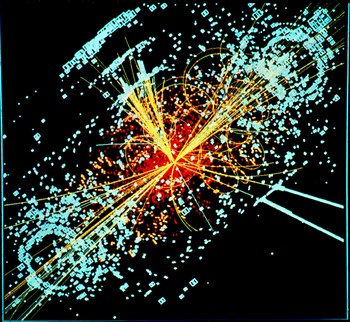High Field Accelerator Magnets: a Path to New Physics
A seminar by Ing. Luca Bottura - Head of the Magnets, Cryostats and Superconductors (MCS) Group, CERN, Geneva, Switzerland
-
Date: 22 MARCH 2019 from 11:30 to 12:45
-
Event location: University of Bologna, Room TA-02 - via Terracini 28, Bologna
-
Type: Seminar

Abstract
The discovery of the Higgs boson at the Large Hadron Collider at CERN has brought High Energy Physics (HEP) in the spotlight.
One of the aims of the next step in HEP is to find physics “Beyond the Standard Model” (BSM). This relies on the systematic analysis of the events generated, searching for the unexpected, as well as precision measurements, checking for anomalies. Though it is generally accepted that BSM physics must exist, it is not clear where and what BSM physics will be.
Several paths are being traced for this search. One of them depends on brighter beam collisions, and larger, higher energy colliders. These are priorities identified in the 2013 European Strategy for Particle Physics, confirmed in the 2014 report of the US Particle Physics Project Prioritization Panel. A cornerstone of this search is high field accelerator magnet technology.
This presentation focuses on the high-energy physics motivation for high field magnets, a short overview of the state-of-the-art of accelerator magnet technology beyond 10 T, the R&D targets for the next 10 years, and an overview of what are the main issues towards 20 T accelerator magnets.
About the speaker
Laureato in Ingegneria Nucleare all’Università di Bologna, Luca Bottura ha ottenuto il titolo di Dottore di Ricerca (Ph.D.) dalla Università di Swansea (Wales, UK) per lo studio della fisica, le leggi di scala e la simulazione numerica della propagazione del quench all’interno di magneti superconduttori di grande dimensione, del tipo utilizzato per reattori sperimentali a fusione termonucleare come ITER. Dopo otto anni di esperienza di progetto, misura ed analisi di magneti superconduttori per i progetti NET ed ITER, in qualità di associato al gruppo di ricerca Europeo presso il Max Planck Institut di Garching (D), ha iniziato a lavorare presso il CERN di Ginevra nel 1995. Da Luglio 2011 è a capo del gruppo di magneti, superconduttori e criostati (MSC) del dipartimento di Tecnologia del CERN. Il gruppo copre integralmente le attività di progetto e sviluppo, costruzione e manutenzione dei magneti resistivi e superconduttori del complesso di acceleratori del CERN, ed è naturalmente implicato in numerose collaborazioni internazionali. Luca Bottura rende servizio alla comunità scientifica come membro di comitati organizzatori di conferenze internazionali come Applied Superconductivity (ASC) e Magnet Technlogy (MT); è uno degli iniziatori della serie di workshops CHATS-AS sull’utilizzo di modellistica per problemi di progetto ed analisi di sistemi superconduttori.